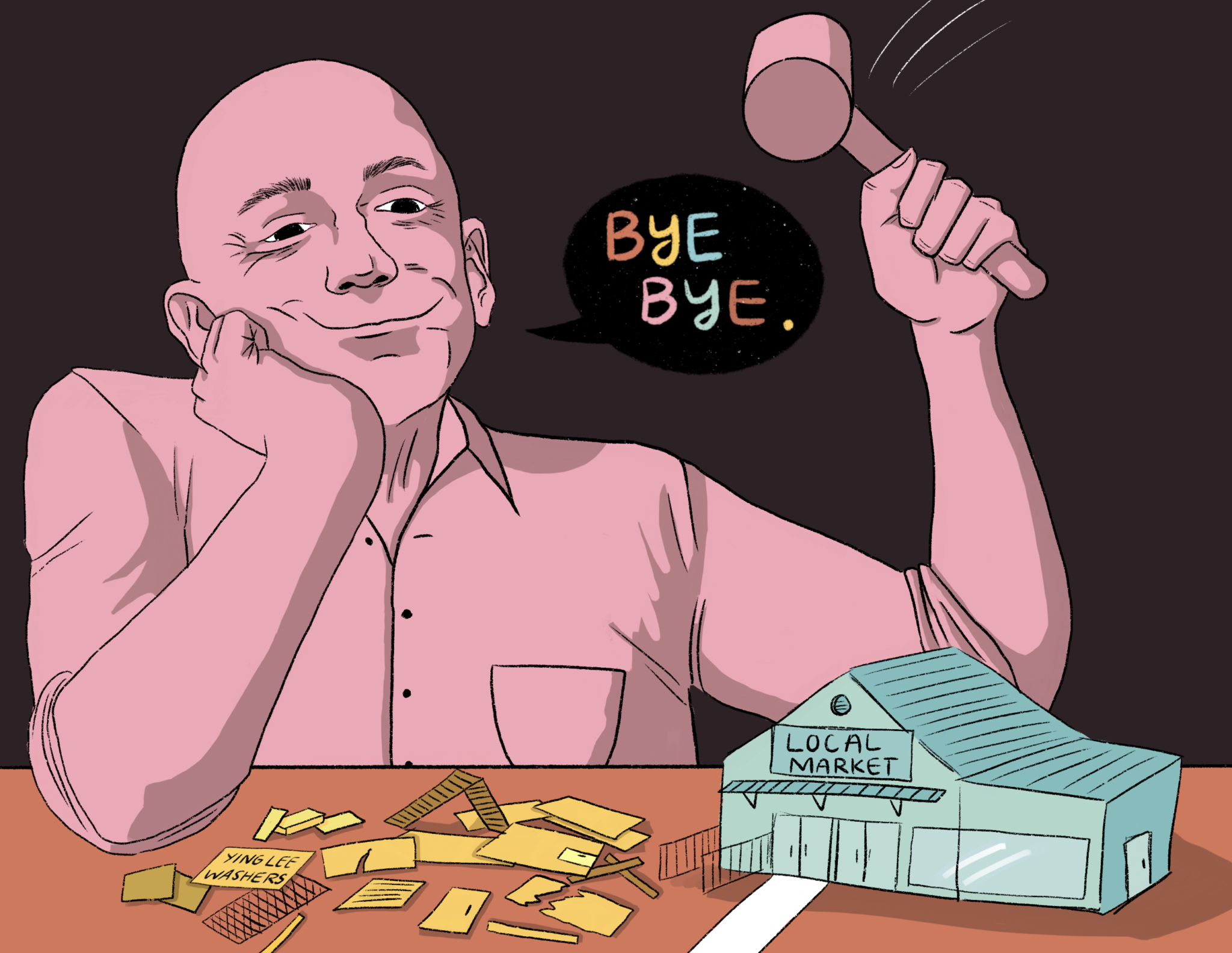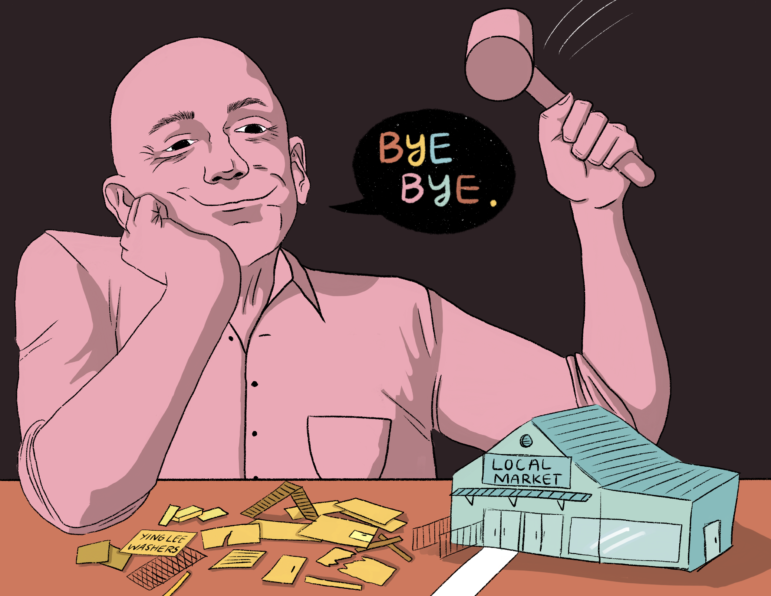
Income inequality between rich and poor in America has doubled over the past 30 years, and the onset of COVID-19 will continue to widen this gap. While the country’s richest added hundreds of billions more to their wealth during the pandemic, 22.3 million Americans didn’t have enough to eat. It’s no surprise that the Bay Area is a prime example of this divide between haves and have-nots; economic inequality in the Bay is the highest of anywhere in California and is among the highest in the country.
Nationwide, federal unemployment benefits are dwindling — many have criticized President Donald Trump’s lack of decisive action and Congress’s failure to pass additional relief legislation to mitigate further economic damage. Californians aren’t very satisfied with Gov. Gavin Newsom’s statewide response either: his approval ratings dropped from 58% in July to 47% in August. For comparison, 34% of Americans approve of President Trump’s response as of last month.
After mandating a stay-at-home order in March, easing restrictions from April to June and reinstating stringent safety guidelines in July, Gov. Newsom implemented the Blueprint for a Safer Economy at the end of August. The Blueprint aims to provide a framework for evaluating COVID-19 infection severity on a county-by-county basis and restoring normal practices for businesses. On Sept. 9, Gov. Newsom enacted several bills intended to aid small businesses in recovery.
While Shilpi Goel, owner of BeautyShilp Services, was pleased with Gov. Newsom’s initial response to the pandemic, she has found the duration of the lockdown to be excessive.
“The biggest mistake that I feel a lot of people are frustrated with is that the lockdown was extended too long,” Goel said. “The virus cannot stop life completely. Even when the vaccine comes, [the spread is] not going to get controlled. People have to move on with their lives.”
Even though the federal government has provided financial relief for small businesses through various assistance programs part of the Coronavirus Aid, Relief and Economic Security Act, many store owners have encountered eligibility issues. The pandemic has left businesses financially fragile, even among store owners who’ve received federal aid. While Nuts for Candy owner John Kevranian has received aid, he’s seen COVID-19 cut profits by 75%.
“We’ve been in business for 27 years. We go day by day,” Kevranian said. “You can be in business for 40 or 50 years, and the pandemic doesn’t recognize that. That’s the issue. It doesn’t discriminate against anybody. It’s just the type of business you’re in: the hotels, the airlines — you’re completely devastated.”
The Bay Area has the third most business closures in the country after metro Los Angeles and New York, and 60% of these closures are permanent. Nationwide, 57% of small business owners have experienced a revenue decrease of more than 75%. In contrast, retail giants like Amazon, Target and Walmart have reported record sales.

Kevranian doesn’t blame these behemoths for their market domination.
“They’re out there doing business. I blame the individuals who shop online instead of shopping at mom-and-pop stores. They find it convenient,” Kevranian said. “They don’t realize what the effects of buying on Amazon are.”
Although Amazon has pledged $18 billion to aid growth for mom-and-pop shops during the pandemic, small business owners typically see the company as a threat.
“When you’re earning money and spending it locally, you’re putting it in the pockets of your neighbors. If you’re buying on Amazon, you’re taking money out of your current economy, and you’re spending it in somebody else’s,” said political science and economics teacher Kevin Nelson. “So over periods of time, those local people are going to get laid off. The less we get local businesspeople up and running again, the more likely [it is that] the economy is going to fall apart.”
Amazon is among a handful of companies that have allowed certain employees to work remotely. While Karen Watson, licensed attorney and manager of engineering archives for the city and county of San Francisco, doesn’t work for one of these companies, she has been working from home since March. The city classifies her work as essential.
“I think [my staff and I] are terribly fortunate in the context of what is going on, when so many people have lost their jobs or have had their jobs curtailed,” Watson said. “The people who have the ability to telecommute and still earn their salary are in a very protected environment. It’s a privilege that many people don’t have.”
The U.S. Census Bureau found that there is a disparity in opportunity for remote work based on income. In August, 56% of Americans with annual incomes between $100,000 and $149,999 worked from home. During the same month, only 20% of those with incomes between $35,000 and $49,999 teleworked.
Inequality extends to different racial demographics as well. COVID-19 has disproportionately impacted minorities financially. A report from the Federal Reserve Bank of New York finds that the number of active businesses from Black and Latino communities fell by 41 and 32% respectively. Comparatively, businesses with white owners declined by 17%. This chasm is linked to systemic poverty and other social conditions that have plagued minorities as a result of institutionalized racism. San Francisco State University student Karla Garcia experienced the aggravating effects of COVID-19 on a low-income minority household firsthand. Since safety restrictions put her out of work, Garcia was unable to support her family using her income. Out of necessity, she used money intended for college on rent.
“There was no money, and there was no way that I could help my parents out,” Garcia said. “That money could have paid for books for the next semester. I could’ve kept that thousand dollars for myself, but I saw my mom cry about needing to risk herself and not being able to pay rent.”
Garcia’s mother runs Garcia House Cleaning Service and has underlying health conditions which make her particularly vulnerable to the virus.
“She’s really forcing herself to start going to work,” Garcia said. “[Business] looks good again, but who knows what’s going to happen with this pandemic. It’s really scary economically.”
United Way Bay Area estimates that among the Bay’s 6.43 million residents, as many as 1.45 million people have an income below what’s needed to pay for necessities. Even before the pandemic, one in four people in Silicon Valley were living at risk for food insecurity. With the onset of COVID-19, food banks in the area have experienced a surge in clients. Second Harvest of Silicon Valley reports distributing double the typical amount of food to people in need.
Junior Alberto Mejia* and his family started going to food banks around May to limit spending.
“It’s been a huge help in saving money,” Mejia said. “[Financially], it’s gotten harder, but my situation hasn’t been as hard as what I’m supposing many other families have gone through. Honestly, you just try not to think about it.”
Mejia’s mother was furloughed in late March and was among the 49 million Americans out of work when U.S. unemployment peaked at 14.7%. She now works as a housekeeper to help make ends meet.
Another factor that will worsen America’s recession is the premature retirement of adults over the age of 55. Small business owner Diane Gelb expresses concern for job hunters in this age group.
“I think it’s harder for our generation to think about being laid off because the possibility of finding another job is a lot more difficult at our age. I mean, I’m 65, so people don’t want to hire somebody who’s 65 because I’m at retirement age,” Gelb said. “I think it’s ageism. [Employers] are going to train someone who they can depend on for years to come, not somebody who’s looking for a job because of the economy right now. They’re looking for someone long term.”
Some Americans might have already borne the brunt of the COVID-19 recession. Those who are comfortable are likely to remain so. However, many will continue to suffer. The future’s uncertain, but the toll today is clear: millions of Americans have lost their livelihoods, and their pain is real.
*Student’s name has been changed to protect their privacy.



